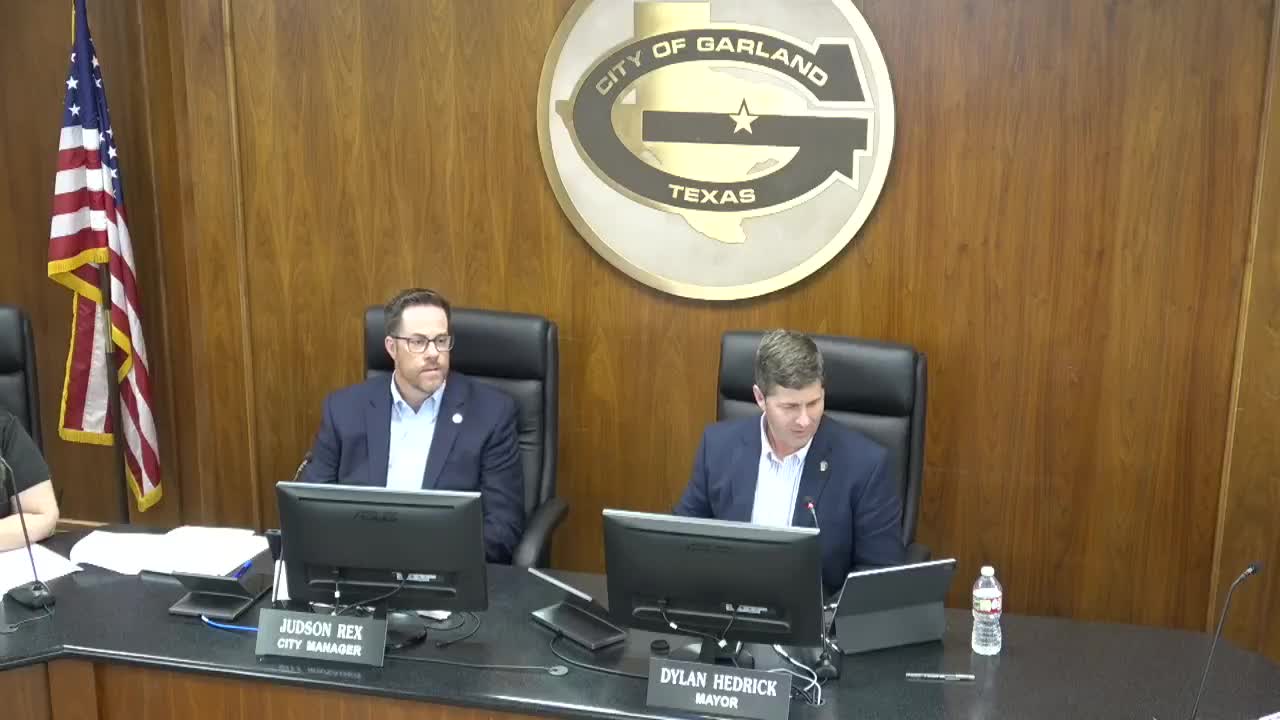DART outlines budget cuts and ridership changes impacting Garland's public transportation
July 07, 2025 | Garland, Dallas County, Texas
This article was created by AI summarizing key points discussed. AI makes mistakes, so for full details and context, please refer to the video of the full meeting. Please report any errors so we can fix them. Report an error »

In a recent work session held at Garland City Hall, city officials gathered to discuss the future of public transportation in the area, focusing on the Dallas Area Rapid Transit (DART) system. Managing Director of Legislative and Public Affairs, Bridal Schraum, provided a comprehensive overview of DART's history and current operations, highlighting its extensive network that includes a 93-mile light rail system, 570 buses, and numerous transit centers serving multiple member cities, including Garland.
Schraum noted that DART's ridership is still recovering from the impacts of COVID-19, with an annual recovery rate of 15 to 20 percent. The discussion turned to the ongoing partnerships between DART and Garland, particularly the redevelopment of the South Garland Transit Center and enhancements to bus services. However, concerns were raised regarding proposed cuts to DART services, which could significantly affect local residents.
The council members expressed their apprehensions about the potential elimination of underutilized routes and the reduction in service frequency, particularly during peak hours. Deputy Mayor Pro Tem raised questions about the criteria used for determining which routes would be cut, emphasizing the need for transparency and accountability from DART.
Mayor Pro Tem Boer underscored the importance of Garland's support for DART while also advocating for the city's interests. He suggested that the council should hold a special meeting to further discuss the implications of the proposed cuts and to strategize on how to advocate for Garland's needs effectively.
The meeting concluded with a consensus among council members that they must take a proactive stance in addressing the challenges posed by DART's proposed changes. As the city navigates these complex issues, the commitment to ensuring reliable public transportation for Garland residents remains a top priority. The council plans to reconvene to explore options and engage with DART representatives to ensure that the voices of Garland's residents are heard in the ongoing discussions about public transit.
Schraum noted that DART's ridership is still recovering from the impacts of COVID-19, with an annual recovery rate of 15 to 20 percent. The discussion turned to the ongoing partnerships between DART and Garland, particularly the redevelopment of the South Garland Transit Center and enhancements to bus services. However, concerns were raised regarding proposed cuts to DART services, which could significantly affect local residents.
The council members expressed their apprehensions about the potential elimination of underutilized routes and the reduction in service frequency, particularly during peak hours. Deputy Mayor Pro Tem raised questions about the criteria used for determining which routes would be cut, emphasizing the need for transparency and accountability from DART.
Mayor Pro Tem Boer underscored the importance of Garland's support for DART while also advocating for the city's interests. He suggested that the council should hold a special meeting to further discuss the implications of the proposed cuts and to strategize on how to advocate for Garland's needs effectively.
The meeting concluded with a consensus among council members that they must take a proactive stance in addressing the challenges posed by DART's proposed changes. As the city navigates these complex issues, the commitment to ensuring reliable public transportation for Garland residents remains a top priority. The council plans to reconvene to explore options and engage with DART representatives to ensure that the voices of Garland's residents are heard in the ongoing discussions about public transit.
View full meeting
This article is based on a recent meeting—watch the full video and explore the complete transcript for deeper insights into the discussion.
View full meeting
